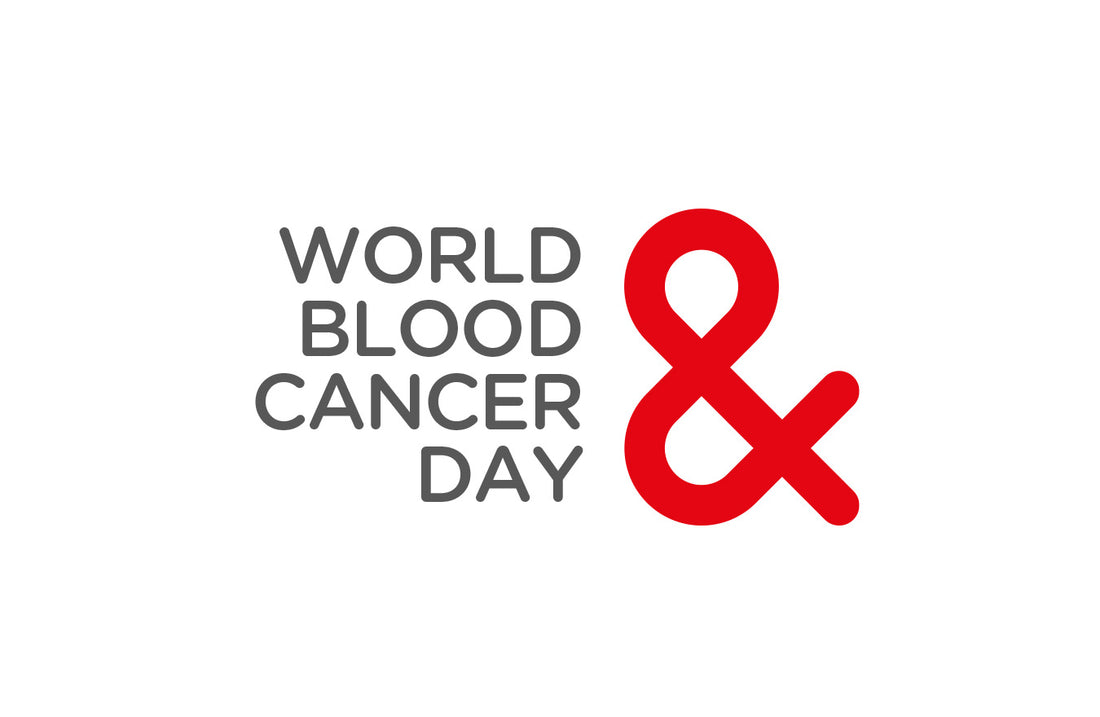
The Dawn of Hope: World Blood Cancer Day - A United Fight Against a Global Challenge
BioCertica Content TeamEvery year, the international community comes together on May 28th to recognize World Blood Cancer Day. This day represents a concerted global effort to raise awareness about blood cancer, share stories of bravery, and foster our collective resolve to eradicate this disease. In this unified front against leukemia, lymphoma, and myeloma, we honor those fighting these diseases, remember those we've lost, and rekindle our collective resolve to conquer this global health challenge.
Blood cancers represent diverse diseases, the most common being leukemia, lymphoma, and myeloma. These malignancies originate from the abnormal growth of blood cells, interrupting the normal functioning of the body's immune system and blood production. Worldwide, millions of people are impacted by blood cancers, underscoring the urgency for advancements in diagnosis, treatment, and prevention.
According to the Global Cancer Observatory, which is part of the World Health Organization (WHO), it is estimated that there were approximately 318,000 deaths from leukemia, 214,000 deaths from lymphoma, and 116,000 deaths from myeloma worldwide in the year 2020.
The key to any cancer treatment is early detection. By catching the disease in its initial stages, healthcare professionals can administer timely interventions, improving the likelihood of positive outcomes. This emphasizes the importance of regular health screenings and maintaining an open dialogue with healthcare providers about any concerning symptoms.
In recent years, we've seen incredible strides in the treatment of blood cancers. Breakthroughs in targeted therapies and personalized treatments that inhibit the growth of cancer cells by 'targeting' specific genes and proteins have significantly improved the prognosis for many blood cancer patients. Such advancements underscore the power of medical research and the importance of continued investment in this field.
World Blood Cancer Day is more than a global awareness initiative; it is also a beacon of hope and inspiration. As we collectively strive for progress, we reaffirm our commitment to scientific advancement, patient care, and global education about blood cancers. We honor the survivors, their courage fuelling our perseverance, and pay tribute to the memories of those lost to this disease, their spirits forever etched in the heart of this cause.
Despite the remarkable strides we've made, our work is far from over. The path to a world free from the burden of blood cancer requires continuous efforts in research, patient support, and public education. The victories we celebrate today would have been unthinkable just a few decades ago, yet we must not rest on our laurels.
To those personally affected by blood cancer, World Blood Cancer Day is a reminder that you are not alone. We stand alongside you in resilience, solidarity, and unwavering hope. For those yet untouched by this disease, consider this an invitation to join the fight. From registering as a stem cell donor, donating to blood cancer research, or merely amplifying the message, every action contributes to our shared mission.
The role of genetic testing in cancer prevention
Amid the progress and breakthroughs in medical technology, the innovative field of genetic testing has emerged as a game-changer in understanding and combating blood cancer. Genetic testing offers profound insights into our individual genetic makeup, revealing potential mutations that can cause blood cancers.
How does this work? Our bodies are composed of trillions of cells, each containing a copy of our DNA - a blueprint that instructs the cells on their functions. However, when this blueprint undergoes mutations, it may lead to the production of abnormal cells, potentially causing cancers.
As we already explained, early detection is key in any cancer treatment. By identifying genetic mutations that may predispose individuals to blood cancer, we are able to administer preventative measures and early interventions.
Further, genetic testing is revolutionizing the way we approach treatments. Targeted therapy, which uses information about a person's genes and proteins to prevent, diagnose, and treat disease, has shown immense promise in treating blood cancers. For instance, the identification of the Philadelphia chromosome in chronic myelogenous leukemia (CML) has led to the development of a targeted therapy that specifically inhibits the abnormal protein produced by this genetic rearrangement.
Still, there is much to be done. The breakthroughs we celebrate today were unthinkable just a few decades ago, but our work does not end here. Continued investment in research, patient care, and education is crucial. Genetic testing, though a monumental stride forward, is just one piece of the puzzle.
At BioCertica, we currently do not provide genetic testing for cancer, although it may be one of our future objectives. However, we provide other tests like these Nutrition and Well-being DNA kit that can indirectly reveal if you are on a good path for preventing cancers.
Namely, nurturing your body with the right nutrition, maintaining well-being, and leading a healthy lifestyle are pivotal in fortifying your defenses against diseases, including cancer. Each individual's body reacts uniquely to different foods and exercises due to their distinct genetic makeup.
Our Nutrition and Well-being DNA kit offers you a personalized roadmap based on your DNA, empowering you to make lifestyle choices that align with your body's needs. Don't leave your health to chance. Take a proactive approach towards preventing cancer by understanding and catering to your body's unique nutritional and wellness needs with our DNA kit.
Finally, on this World Blood Cancer Day, we reignite our pledge to a future where blood cancer is no longer a dread-filled diagnosis but a treatable, beatable disease. With each sunrise, we inch closer to this reality, buoyed by relentless hope, resilience, and innovation. After all, together, we are stronger, and the only way to change the future is to have a hand in shaping it.



